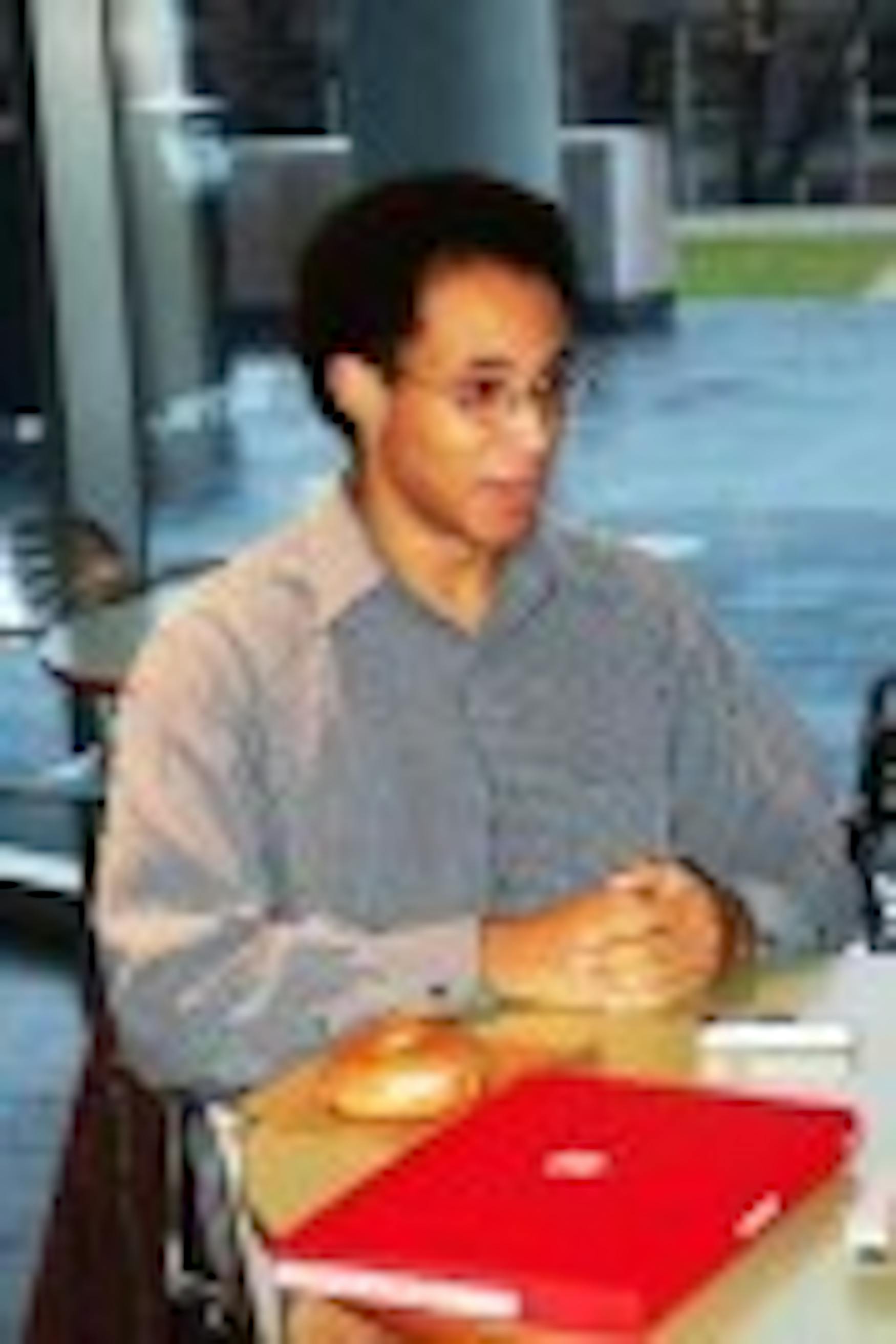Student creates digital composer
Nowadays, computers can perform tasks that once could only be accomplished with the aid of human skill and brainpower. Math, writing, you name it-there is surely some gadget or program that takes care of a lot of the work for you in every field. But something as precise as a musician's fine-tuned couldn't possibly be replicated by a machine -- or could it? Brandeis computer science major Peter Swire '10 has proved otherwise with a project he's currently working on with Prof. Timothy Hickey (COSI). JustArts: So, what exactly does your program do?
Peter Swire: It listens to input from a live musician; it can be a full band or something like that. Then it determines what they're playing and then tries to make an accompaniment or melody behind it.
JA: Has it been successful?
PS: So far it can listen to the radio and try to play chords behind it, and most of the time it's pretty accurate.
JA: That's really cool. How exactly does it work? That's pretty impressive that a computer can just pick up notes like that.
PS: The simple version, the one that just plays chords behind it, what it does is it brings in sound from the sound card, and then it divides it up into these things I made called seven-band filters. It has a low-pass and a high-pass filter overlapping the first note. If you start at A440 (the pitch corresponding to the A above middle C), you have a low-pass with a threshold at A440 and a high-pass at A440, so that means every time it hears it, it can represent that as an A instead of just noise. It gives you the value of A at seven octaves, so as low as you can go to just about as high as you'll ever hear, and determines what an A is. It does that for all 12 notes, and once it has the values for all 12 notes, it listens for the highest ones. It has a threshold for the amplitude, so background things like people coughing in the audience won't disturb what you're playing. Then it just plays those notes back in real time.
JA: Do you have a musical background?
PS: I took MUS 5a ["Fundamentals of Music," which addresses notation and elementary theory], and I'm starting music theory and history now. I have a guitar, but at my high school, when most people already knew how to play A scales and stuff, I just spent a whole lot of time plugging it into things.
JA: So, without much of a background in music, what inspired you to do this?
PS: A while ago, around freshman or sophomore year, I started seeing the same thing in music that I was seeing in programming. Things like, you know the song "Row, Row, Row Your Boat?" You can define that as a recursive function. It's self-harmonizing, so it's a round. If you offset it by a little bit, it harmonizes with itself, and I thought that was pretty cool . things like that. So really a practical reason for why I'm doing is this because I can.
JA: If you get all the kinks worked out and this becomes a successful operation how could it possibly revolutionize the music industry?
PS: My dad asked me the same question. To answer him, I played him a song by 50 Cent and then a few that my computer made. I asked him to say which one was better and [he said] the computer's. I mean, computers have been doing calculus at the end of grad level since, like, the '80s, and I figure by now they should be able to compose at the end of grad level.
JA: When will your project be finished?
PS: It should hopefully be completed by the end of this year. So far, so good.
JA: And what's the next step after that?
PS: That's a good question. Harvey Mudd College in California and Champlain in Chicago both have cool music things, so I'd like to go there for an internship in the summer.




Please note All comments are eligible for publication in The Justice.